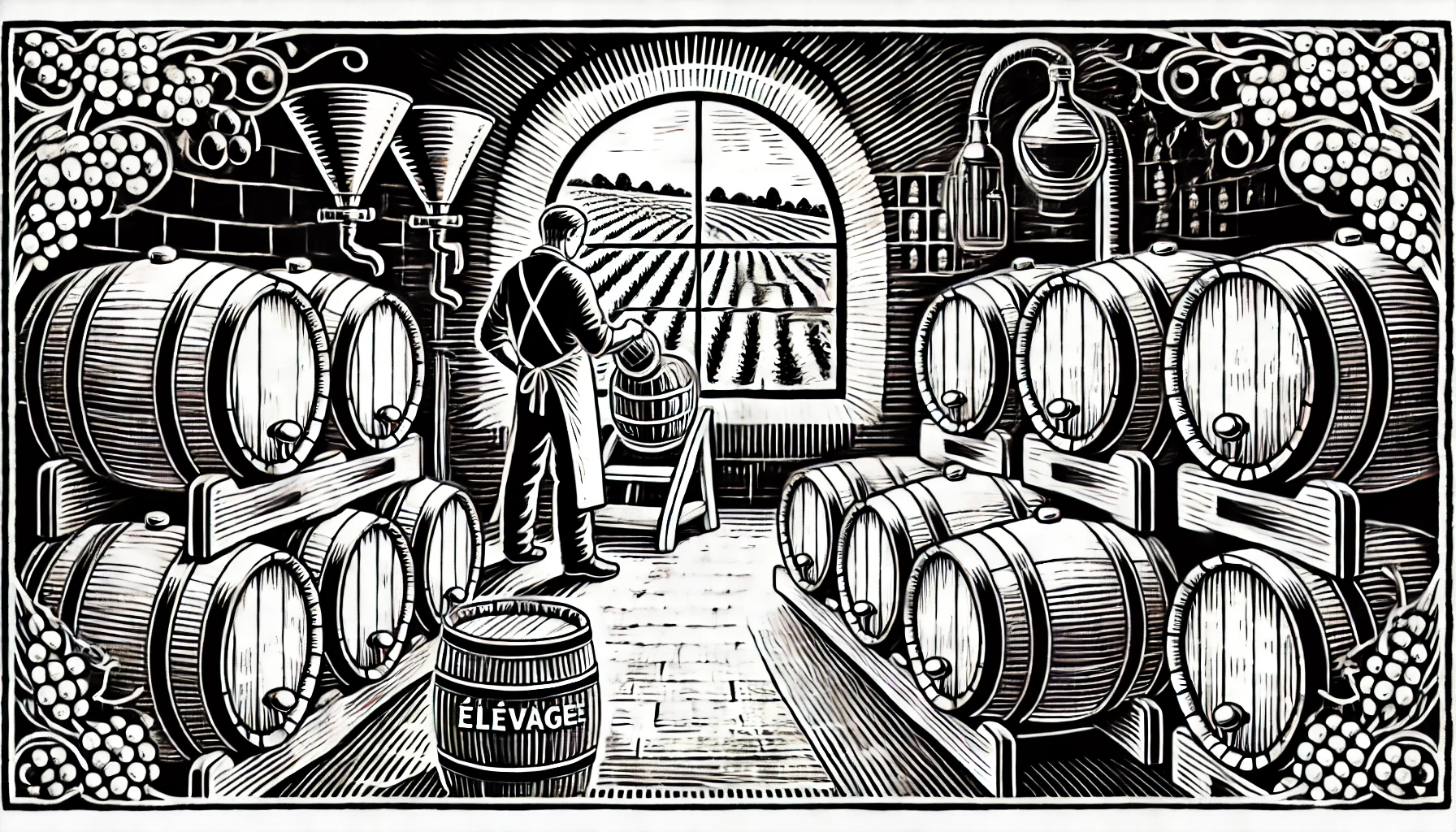
Élevage is a French term used in winemaking to describe the process of “raising” or maturing a wine from the end of fermentation to its bottling. Just as a child is nurtured and developed over time, wine undergoes several stages of refinement during élevage. The process involves a series of techniques aimed at shaping the wine’s character, flavors, and texture. Élevage often includes aging the wine in barrels (sometimes new or used oak), stainless steel tanks, or concrete vats, depending on the desired style and outcome.
One key aspect of élevage is how long the wine is allowed to age and in what conditions. The choice between oak or stainless steel, for example, has a significant impact on the final product. Oak aging typically imparts flavors like vanilla, spice, or toast to the wine, while stainless steel preserves freshness and purity. During this time, the wine may also be racked, meaning it is transferred from one vessel to another to help clarify the wine by removing sediment.
Fining and filtering are often part of élevage as well, techniques used to clarify the wine and ensure stability before bottling. Fining agents such as egg whites or bentonite clay help bind to unwanted particles, while filtration removes any remaining sediments or bacteria.
The choices made during élevage—whether to allow longer barrel aging or less intervention—play a crucial role in the final taste, texture, and balance of the wine. A well-executed élevage can bring harmony and complexity to a wine, preparing it for aging or immediate enjoyment.
Neugierig auf weitere Weintermini und spannende Einblicke? Besuchen Sie unseren Wine Wiki Bereich und entdecken Sie grundlegende Weinbegriffe sowie Expertentipps!